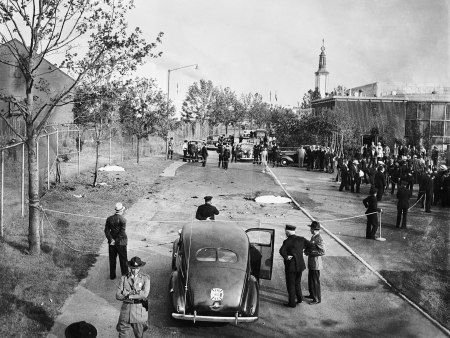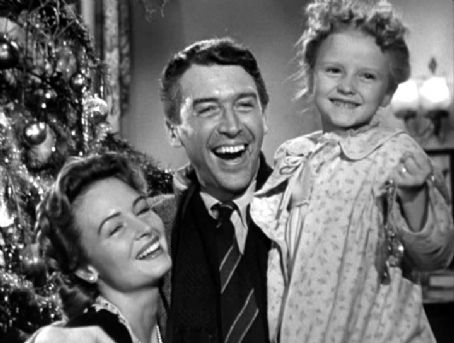Sunday 11 August 1940
 |
| Spitfires during the Battle of Britain. |
The heightened pace of the aerial battle that began on 8 August resumes on 11 August 1940. One can view today as the climax of the "Kanalkampf," the preliminary softening up of British defenses. Today has the highest losses for both sides to date. High losses are worse for the RAF than for the Luftwaffe, since the Germans start out with a huge advantage in aircraft. The Luftwaffe has roughly:
- 700 Bf 109s;
- 160 Bf 110s;
- 250 Stuka Ju 87 dive-bombers;
- 800 Heinkel He 111s, Dornier Do 17s, Junkers Ju 88s, and other medium bombers.
The numbers are only part of the story. The Luftwaffe has not had to scrimp on training and has veteran pilots who cut their teeth during the Spanish Civil War. The British have had to shorten their pilot training programs in order to keep up with losses.
The Luftwaffe begins to implement Reichsmarschall Goering's change in focus from shipping to airfields and factory targets. At around 08:30, a large fighter-bomber force ignores the ships in the Channel and bombs Dover instead. RAF Nos. 64 and 74 Squadrons intercept the force of about 60 Bf 109s and 110s, but not before the Germans bomb the town heavily. The barrage balloons over the town turn into a liability, as they fall on the town in flames and start larger fires.
A little later, another, larger Luftwaffe bombing raid heads in from the south from the Cherbourg area. This one is not fighter-bombers, but rather mainly Junkers Ju 88s and Heinkel He 111s escorted by Bf 109s and 110s. This is a huge aerial armada of about 170s planes. The RAF this time is on the ball and gets RAF Nos. 145, 152, 213, 238, 601 and 609 Squadrons in the air as the bombers approach. Massive dogfights take place off the coast, but the mass of bombers continues heading for its target of Portland Harbour and Weymouth. This raid causes extensive damage, including to trawler HMS Hertfordshire which is in drydock.
In addition, the Luftwaffe damages the destroyer HMS Windsor in the Thames Estuary, destroyers HMS Scimitar and Skate at Portland Harbour, and destroyer HMS Esk at Harwich. In addition, British trawler HMS Edwardian is damaged off Kent (3 dead, 3 other casualties), British freighter Kirnwood is damaged, and British tanker Oil Trader is damaged by the Luftwaffe off Shipwash Light Vessel.
Overall, it is estimated that the Luftwaffe loses 38 aircraft today:
- 2 Heinkel He 59s
- 2 Ju 87 Stukas
- 6 Junkers Ju 88s
- 3 Dornier Do 17Zs
- 10 Bf 110s
- 15 Bf 109s
As for the RAF, it also takes massive losses. Its losses are estimated at around 30 planes, but they are almost all Hurricane and Spitfire fighters. Thus, as usual, there are different ways to analyze the day's losses. Based purely on fighter losses, the Luftwaffe comes off slightly better or at least even, but the German bomber losses are not inconsequential.
RAF Bomber Command continues its raids on oil installations, airfields and factories at Dortmund, Gelsenkirchen, Wanne Eickel, Cherbourg, Dusseldorf, Hamm, and Soest.
Overall, it is possible to see today's vicious actions as a step forward for the Luftwaffe in its plan to grind down the RAF. It is a good set-up for the true start of Adlerangriff. Simply reciting plane losses that appear to slightly favor the RAF completely ignores the massive damage being inflicted on British shipping and shore installations and the increasingly over-strained condition of the British defenses. It also overlooks the dozens of scarce pilots lost today. While it is normal to lose new pilots on their first missions, when you lose this many at once, you also lose very experienced men.
One final point: one of Stalin's aphorisms is that "Quantity is its own quality." When hundreds of planes are in action at once, any slight qualitative advantage by the RAF is nullified (and it is very unclear who actually has such an advantage). There are many hushed-up reports of "friendly fire" incidents where new, inexperienced RAF pilots shoot down other RAF planes through sheer confusion and accident as they navigate the melee. Massive air battles with no clear winner tend to fulfill the Luftwaffe's goals.
In the South Atlantic near Capetown, passenger ship Ceramic collides with freighter Testbank. Both ships make it back to port with major damage.
The British conduct minelaying in the North Sea.
Convoys OA 197 and MT 137 depart from Methil, Convoy OB 197 departs from Liverpool, Convoy FN 249 departs from Southend, Convoy FS 249 departs from the Tyne, Convoy HG 41 (45 ships) departs from Gibraltar headed for Liverpool, Convoys SL 43 and SLF 43 depart from Freetown, Convoy BS 2A departs from Suez bound for Aden.
Operation Fish, the transfer of gold from England to Canada, continues. Battleship HMS Revenge leaves the Clyde with £14.5 million pounds in gold destined for Halifax and then the Bank of Ottawa. The convoy, which includes half a dozen freighters and four destroyers, is designated Convoy ZA.
Battle of the Mediterranean: It is quiet again on Malta, the first quiet Sunday in some time. Governor Dobbie has been urged to build more air raid shelters, so he requests large quantities of cement, reinforcing timber and the like from Middle East Command.
 |
| U-38 after a successful mission. |
Of the six hills occupied by the British that overlook the main coastal road, the Italians capture one defended by the 3rd Battalion of the 15th Punjab Regiment. Attacks on two other hills are stopped with great difficulty.
British Government: General Wavell, commander of British forces in the Middle East, is successful in convincing the British War Cabinet and Prime Minister Winston Churchill to send 150 tanks, 48 anti-tank guns, 48 field guns, and 20 Bofors anti-aircraft guns to Cairo. This is a highly risky move, since the threat of invasion still hangs over London, and it effectively halves the armored forces in England.
Soviet/German Relations: The Baltic states now have been absorbed into the Soviet Union as Soviet Socialist Republics. Soviet Foreign Minister Vyacheslav Molotov thus asks the Germans to withdraw their ambassadors to those defunct nations. As is his practice, he gives the Germans a deadline, 1 September. The Germans, meanwhile, are planning their own demands on the Soviet Union for Spring 1941.
Swiss/German Relations: The nations sign a new trade deal.
 |
| The 165-foot long Presidential yacht USS Potomac. Launched in 1934, it remains a tourist attraction in the 21st Century. |
Argentina: Arnulf Fuhrmann, a German leader, is arrested.
Albania: A revolt centered in the northern Miriditi district continues to spread, with the Italian occupation forces engaging in ruthless pacification practices such as burning villages.
China: The Japanese bomb Chungking, the Nationalist Chinese capital. A handful of Chinese flying I-15 fighters cross above the Japanese formation and drop time-delayed parachute bombs. This causes mass confusion among the bombers and disperses the attack, but major damage still is caused to the city.
Holocaust: Confiscation of Jewish property in Paris and surrounding areas shifts into high gear with Einsatzstab Reichsleiter Rosenberg ("ERR"), a "special" formation of the NSDAP Office of Foreign Affairs to steal paintings, sculptures and "decadent" art. In point of fact, under German law this is not theft, because such works are now considered "ownerless" and their Jewish owners "stateless."
American Homefront: Hurricane season is in full swing. Following on the hurricane that struck Texas, another one hits the coasts of Georgia and South Carolina, killing about 50 people in all.
 |
| A Polikarpov I-15 fighter. |
August 1, 1940: Two RN Subs Lost
August 2, 1940: Operation Hurry
August 3, 1940: Italians Attack British Somaliland
August 4, 1940: Dueling Legends in the US
August 5, 1940: First Plan for Barbarossa
August 6, 1940: Wipe Out The RAF
August 7, 1940: Burning Oil Plants
August 8, 1940: True Start of Battle of Britain
August 9, 1940: Aufbau Ost
August 10, 1940: Romania Clamps Down On Jews
August 11, 1940: Huge Aerial Losses
August 12, 1940: Attacks on Radar
August 13, 1940: Adler Tag
August 14, 1940: Sir Henry's Mission
August 15, 1940: Luftwaffe's Black Thursday
August 16, 1940: Wolfpack Time
August 17, 1940: Blockade of Britain
August 18, 1940: The Hardest Day
August 19, 1940: Enter The Zero
August 20, 1940: So Much Owed By So Many
August 21, 1940: Anglo Saxon Incident
August 22, 1940: Hellfire Corner
August 23, 1940: Seaplanes Attack
August 24, 1940: Slippery Slope
August 25, 1940: RAF Bombs Berlin
August 26, 1940: Troops Moved for Barbarossa
August 27, 1940: Air Base in Iceland
August 28, 1940: Call Me Meyer
August 29, 1940: Schepke's Big Day
August 30, 1940: RAF's Bad Day
August 31, 1940: Texel Disaster
2020






